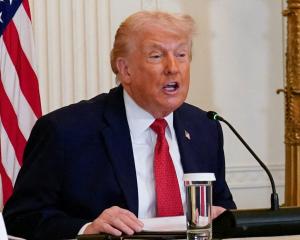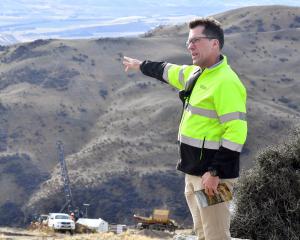
Act New Zealand wants to rewrite the Treaty of Waitangi, to effectively boil it down to three principles: 1. "kawanatanga katoa o o ratu whenua" — the New Zealand government has the right to govern all New Zealanders. 2. "ki nga tangata katoa o Nu Tirani te tino rangatiratanga o o ratu whenua o ratu kainga me o ratu taonga katoa" — the New Zealand government will honour all New Zealanders in the chieftainship of their land and all their property. 3. "a ratou nga tikanga katoa rite tahi" — all New Zealanders are equal under the law with the same rights and duties.
Tellingly, the centrepiece is all about individual property rights ("The government will honour ... ") for which the other two parts provide a context.
Given its source this condensate is hardly surprising and its simplicity will no doubt appeal to many. It is, perhaps, too simple an expression of the individualist ideal and, like all such ideals, would be apt to crumble under the messiness of social and political reality. If the Treaty is our founding constitutional document this version of it is plainly inadequate.
Equally unsurprising is a fierce reaction from Maori. Consequently the Waitangi Tribunal has been asked to reiterate its earlier finding that the Treaty of Waitangi "is an international treaty between two sovereignty [sic] states in which Maori did not cede their sovereignty".
This too seems to be a bit problematic (is New Zealand blessed with two sovereign governments?) and has been questioned from time to time, not least by Dame Anne Salmond.
However, an excursion into the historical niceties or the vexed relation between "kawanatanga" and "rangatiratanga" is probably futile at this point.
More to the point are some of the assumptions that underlie both Act’s proposals and some of the reactions to them.
"This cutting and pasting", asserts a kaumatua, "demeans, debases and trivialises our founding document as a nation, and disparages and denigrates Ngapuhi as the guardian of these sacred covenants".
That the Act proposal trivialises and decontextualises the Treaty of Waitangi is undeniable; that the document is a "sacred covenant" is a rather more concerning notion; that any particular group of people are "guardians" of this covenant no less so, if that is to mean anything more than custodians of the Treaty’s physical remains or of the place associated with it.
There is a disturbing religiosity about this. "Sacred covenant" is clear enough and its implications are shared by the rigidity of blind faith in the tenets of neoliberalism that inform the more extreme end of the liberal spectrum. It is the rigidity and exclusivity of this kind of thinking that raises difficulties in a political context.
Not for nothing have modern democracies made a point of separating politics and religion and there can be few people in New Zealand, apart from Brian Tamaki, who would welcome theocratic government.
The idea of guardianship needs to be carefully thought through. Virtually all organisations have guardians — people who are given a degree of authority to maintain the integrity of their values and functions. I once saw on a table in a student caf a flyer advertising the Anarchist Society AGM and election of officers.
Guardians can range from humble committee members to a priesthood and the nature of their authority depends largely on who or what holds the ultimate power and to whom the guardians are responsible.
In religious organisations this tends to be God, who delegates authority to a priesthood. In organisations with any pretence to democratic values it is supposed to be the membership, who delegate authority to representatives.
The point about God, of course, or any other absolute ruler whether loving or fearsome, is that he/she can’t be questioned, asked to justify anything or be subject to change. Democratic organisations are subject to change according to the will of an electorate.
And change affects not only the people involved, but environments, natural, social and political. Hence laws/rules get out of date and new ones appear; documents, even constitutions get left behind. As one commentator has noted, the United States is to a degree shackled by its constitution to the 18th century.
When one mode infiltrates the other, we have a problem. The Anglican Church, a self-declared democratic organisation, is considered by one acquaintance of mine to have left God behind.
And then there is a trinity of government ministers responsible for the proposed Fast-track Approvals Bill, who want to give themselves decision-making powers that are beyond interrogation or justification.
Where, then, does the Treaty of Waitangi stand in all this?
On the face of it its formal guardian is the Waitangi Tribunal, whose task it is to measure the decisions of government and government agencies against the principles of the Treaty, as it sees them.
Our political situation gives us two extremes. Act and probably New Zealand First consider the Treaty to be dated and irrelevant. They don’t say so explicitly, but it is a rather obvious inference from what they say and do. Their own "religion" is incompatible with it.
On the other hand the upholders of the "sacred covenant" also seem to want to go beyond question and argument about what the Treaty is and what it means. Neither gives us anywhere to go.
At the risk of repetition, it seems imperative that the two major political parties, led by their Maori caucuses, talk to see if they can find a path for the Treaty that acknowledges its historical significance and gives it some meaning in the social and political dynamics of the present.
The last thing we need in our politics is the manifestation of priestly powers of any description.
— Dr Harry Love is a former Otago branch president of the Association of University Staff (1993) and sometime honorary fellow in classics at the University of Otago.









